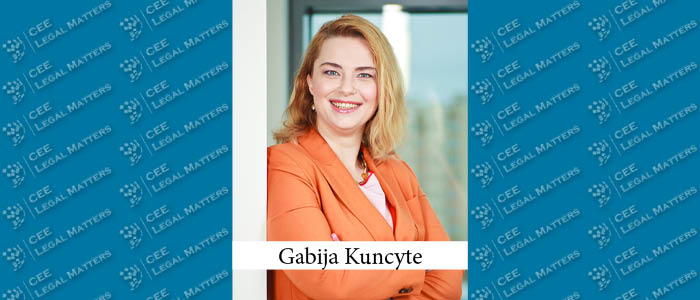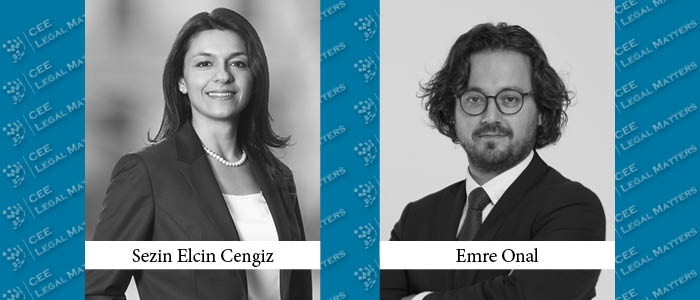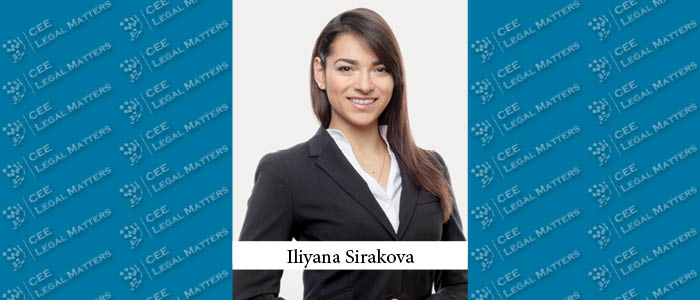After several years working for law firms and on major energy projects, Gabija Kuncyte has been with Compensa Life Vienna Insurance Group’s Lithuanian Branch as a Legal and Compliance Officer for over a year and a half. She discusses the evolution of in-house legal positions and the nuances of the legal industry in the Baltic region.
CEELM: Walk us through your career leading up to your current role.
Kuncyte: I’ve been in the legal sector for over two decades now. My journey began in private practice, where I spent my initial five years. As time passed, I received a proposal from a very large private company to join an energy project. The transition in-house was eye-opening. At that time, I didn’t know there would be such a huge difference between working in a law firm and working in-house. In a firm, you delve deep into legal topics, but often without the insight into how your advice truly impacts the business and seeing how your legal advice is actually implemented, including if it does add value to the business or not. The in-house role, on the other hand, means you get to see the bigger picture and be directly involved in business operations.
After that energy project, I was involved in three other major ones in the country – the Klaipeda LNG terminal, the Gas Interconnection Poland-Lithuania (GIPL), and LitPol Link. However, after 15 years of significant experience in energy projects, I felt a bit of a burnout – these projects were quite intense and demanding, requiring immediate action, constant multitasking, and almost impossible deadlines. For me, work-life balance became a priority. This is when I joined Compensa Life – a part of the Vienna Insurance Group, a major player in the European insurance industry. I’ve been here for a year and a half, and I feel there is more of a balance in my life. I have both regional tasks and some European-level ones, and that is exactly what I always wanted. Therefore, I find it very easy now to decline employment offers from even very well-known local companies.
CEELM: You touched on this already but what was the biggest shock when transitioning to the in-house world? On the flip side, what was the most pleasant surprise?
Kuncyte: The most significant shock was realizing that legal knowledge alone wasn’t sufficient. In-house lawyers must deeply understand processes, possess at least some business and/or financial background, and grasp the intricacies of the business world. It’s not just about legal advice but about seeing the broader impact on the company.
This was challenging but it also represented a pleasant surprise. In-house lawyers who understand and care about the business itself are valued every day. We are aware of, and a part of all processes in the company, which is why we not only address legal questions, but also provide insights from a business perspective or approvals for important in-house projects. This is why it is somewhat of a trend in our local market that legal counsels become CEOs or deputy CEOs in companies. The main reason for this trend is that in-house lawyers are practically involved in all the processes of the business operations.
CEELM: How large is your in-house team currently, and how is it structured?
Kuncyte: Currently, our in-house team consists of four lawyers, including those specializing only in AML and data protection. The total number of lawyers in the Baltics is 11. We manage operations in the Baltic countries and work closely with all business lines daily.
CEELM: How do you decide if you are outsourcing a project or using internal/in-house resources?
Kuncyte: Our decision to outsource or use internal resources is based on three key criteria. First, if a matter is highly confidential and sensitive, such as tasks from the management board or shareholders, we tend to outsource it to maintain confidentiality. Second, for complex or specialized topics, like competition law, we may outsource when deep expertise and connections with institutions are crucial. Lastly, for urgent matters that require a significant workforce, we might opt to outsource to avoid overwhelming our internal team.
CEELM: When picking external counsel, what criteria do you use?
Kuncyte: We do consider formal criteria like conflicts of interest but personal reputation and personal recognition matter significantly in our small market. In addition to expertise, we value discretion, personal attitude, creative problem-solving, and a holistic approach. In smaller countries like Lithuania, reputation, and ability to provide a holistic and in-depth understanding of the particular business play a vital role.
CEELM: What has been keeping you and your in-house team busy over the last 12 months?
Kuncyte: Over the last year, we’ve seen a flood of new regulations, especially at the EU level. Not only they are large in quantity, but their complexity has increased. Regulations, like the GDPR and DORA, require an in-depth understanding. The DORA, for instance, delves into the technicalities of IT, but still, it is important for in-house legal professionals to fully understand its details. These regulations are becoming more detailed, demanding a profound grasp of their finer points. The challenge is to translate these complex regulations into practical, actionable guidelines for our company. In my role, I must ensure that we not only comply with these regulations but also understand them thoroughly to make informed decisions for business in advance.
Moreover, the pace at which new regulations are introduced is alarming. In the past, regulators seemed to coordinate their actions, but now they’re acting more independently, sometimes making abrupt changes even at the EU level. This makes it increasingly challenging to stay ahead and maintain compliance.
CEELM: What do you foresee to be the main challenges for GCs in Lithuania/Baltics in the near/mid future?
Kuncyte: Looking ahead, our business is dealing with the repercussions of ongoing global issues, especially the war in Ukraine and other crises, such as those in Israel. These events are significantly affecting our clients’ behavior and, in turn, our business operations. In the near future, I expect this heightened pace of regulatory change and global instability to continue impacting our workload.
As for the region itself, the geographic proximity to ongoing conflicts, such as the war in Ukraine, poses significant challenges for businesses. International companies operating here are reevaluating their presence and activities in light of increased risks. This presses us to look for more flexible and riskless options for our clients.
CEELM: Overall, considering the current challenges, how do you believe that the role of in-house lawyers is evolving?
Kuncyte: One emerging trend is the growing demand for in-house lawyers to take on more extensive roles as project managers and leaders. In the past, lawyers were primarily seen as just advisors who provided legal input once a project was already underway or even after it was already finished. However, companies are now recognizing the value of having legal professionals involved from the inception and design of projects. Legal experts are expected to offer insights and recommendations on various aspects, from legal compliance to risk management, data protection, sustainability, IT security, etc. In essence, the role of in-house lawyers is evolving into one that encompasses a more holistic perspective.
This shift reflects a broader transformation in the corporate world, where businesses are acknowledging the importance of having legal expertise integrated into their strategic decision-making processes. The demand for in-house lawyers to be more deeply embedded in the day-to-day activities of the company is increasing. We are all becoming more business consultants than lawyers actually.
This article was originally published in Issue 10.10 of the CEE Legal Matters Magazine. If you would like to receive a hard copy of the magazine, you can subscribe here.


























